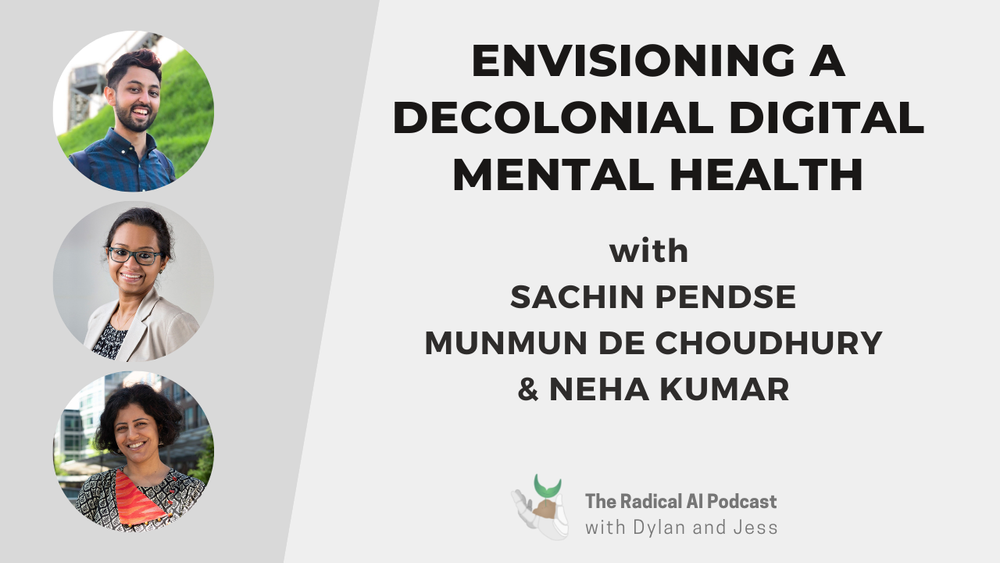
ΑΙhub.org
Radical AI podcast: featuring Sachin Pendse, Munmun De Choudhury and Neha Kumar

Hosted by Dylan Doyle-Burke and Jessie J Smith, Radical AI is a podcast featuring the voices of the future in the field of artificial intelligence ethics. In this episode Jess and Dylan chat to Sachin Pendse, Munmun De Choudhury, and Neha Kumar about visualizing our lives through data.
Envisioning a decolonial digital mental health
In this episode we have a panel discussion about decolonial digital mental health with three leading experts on the topic: Sachin Pendse, Munmun De Choudhury, and Neha Kumar.
Sachin is a PhD student in Human-Centered Computing at Georgia Tech, researching the role that technology plays in addressing barriers that prevent people from receiving consistent mental health care. Follow Sachin on Twitter @SachinPendse.
Munmun is the Associate Professor in the School of Interactive Computing at Georgia Tech. She founded and directs the Social Dynamics and Wellbeing Lab that seeks to develop technologies for improving our mental well-being. Follow Munmun on Twitter @munmun10.
Neha is an Associate Professor at Georgia Tech and leads the Technology and Design for Empowerment lab with a focus on the intersection of human-centered computing and global development. Follow Neha on Twitter @nehakumar.
If you enjoyed this episode please make sure to subscribe, submit a rating and review, and connect with us on twitter at @radicalaipod.
Full show notes for this episode can be found at Radical AI.
Listen to the episode below:
About Radical AI:
Hosted by Dylan Doyle-Burke, a PhD student at the University of Denver, and Jessie J Smith, a PhD student at the University of Colorado Boulder, Radical AI is a podcast featuring the voices of the future in the field of Artificial Intelligence Ethics.
Radical AI lifts up people, ideas, and stories that represent the cutting edge in AI, philosophy, and machine learning. In a world where platforms far too often feature the status quo and the usual suspects, Radical AI is a breath of fresh air whose mission is “To create an engaging, professional, educational and accessible platform centering marginalized or otherwise radical voices in industry and the academy for dialogue, collaboration, and debate to co-create the field of Artificial Intelligence Ethics.”
Through interviews with rising stars and experts in the field we boldly engage with the topics that are transforming our world like bias, discrimination, identity, accessibility, privacy, and issues of morality.
To find more information regarding the project, including podcast episode transcripts and show notes, please visit Radical AI.










